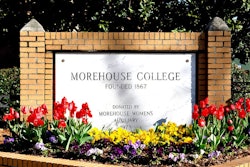In 2000, the NCAA took a look at the number of minority women who were head coaches in Division I women’s college basketball and the statistics were underwhelming — only 19 head coaches out of 330 programs. Over the next two years, the Minority Opportunities and Interests Committee brought in various associations involved in basketball to try to figure out how to advance minority women in coaching.
With NCAA Matching Grants for the Advancement of Minority Basketball Coaches, two distinct programs were born. Black Coaches and Administrators developed the Achieving Coaching Excellence program (ACE) to work with experienced assistant coaches who wanted to become head coaches, helping 12 participants per year. At the same time, the Women’s Basketball Coaches Association introduced “So You Want To Be A Coach,” which takes a group of 50 young women who have completed their playing eligibility and gives them a two and a half day crash course in what the coaching profession entails. With the NCAA Tournament starting tomorrow, many players are at or near the end of their playing days and are deciding whether they will make coaching basketball a career.
Each year, So You Want To Be A Coach, which debuted in 2003, takes place at the site of the WBCA annual convention and NCAA Final Four. This year, it will be April 4-6 in Tampa Bay, Florida. Participants are selected through an application process, which includes nomination and recommendation by that player’s head coach, who must be a WBCA member. It is open to Divisions I, II, III and NAIA, but the majority of applicants tend to be Division I, because it is typically their universities that pay the cost of attending.
“For a lot of the players, the sport is their passion. They’ve got to decide if coaching is [also their passion]. In coaching, you’ve got to be a counselor, a teacher, an advisor and a coach. You have so many hats to wear,” says Betty Jaynes, former CEO of the WBCA and now a consultant with the organization. “We’re meeting with them at a time when they’re trying to make up their minds if this is what they want to do. We present them with a smorgasbord of presentations that help them determine if they want to be a coach or not,”
Participants first meet with the WBCA’s non-Division I board members. “We want to make sure that these players understand that they’re probably not going to be hired in Division I,” says Jaynes. “There are good positions in Divisions II, III, NAIA, junior college and high school.”
Twenty-nine of the participants from the 2005 So You Want To Be A Coach program scored jobs in the field. Jaynes estimates that 16 of the 49 attendees from 2006 went into coaching. From the 2004 class, 25 found coaching jobs and 19 from 2003. She doesn’t yet have the numbers from 2007.
Jaynes says some changed their minds about coaching after attending the program, either opting to play professionally in the WNBA or overseas or opting for another line of work. The participants represent a broad range of majors — from English to pre-law to engineering — so some may follow those paths.
There are sessions on resumes and interviewing. There is one on-court session with top Division I coaches, such as Geno Auriemma of the University of Connecticut and Gail Goestenkors of Texas, who show them how to run a drill. They hear how behavior has to change when someone goes from player to coach. A very popular discussion is about what kind of life a coach can expect. Last year, Rutgers head women’s basketball coach C. Vivian Stringer answered questions for nearly an hour about how she raised three children, one of whom has special needs, as a single mother and still coached teams to the Final Four. Players are also able to walk around the WBCA convention floor and interact with various coaches.
One of the final panels is with people who have participated in the BCA’s ACE program. “They talk to the students about when they finish this ‘So’ program and they get a job as an assistant, what the next seven to nine years of their lives will involve,” says Jaynes. “They tell them what they’ve done in the ACE program, where they’re learning how to go from an assistant to a head coach.”
“I think ‘So You Want To Be A Coach’ offers the aspiring basketball coach a great snapshot into the intricacies of the coaching profession,” says Floyd A. Keith, executive director of the BCA. “I highly recommend the program to anyone who has the desire to participate. Those who are fortunate to be accepted into the program will not regret their decision and will be able to use the information provided for years to come.”
Click here to post and read comments
© Copyright 2005 by DiverseEducation.com















